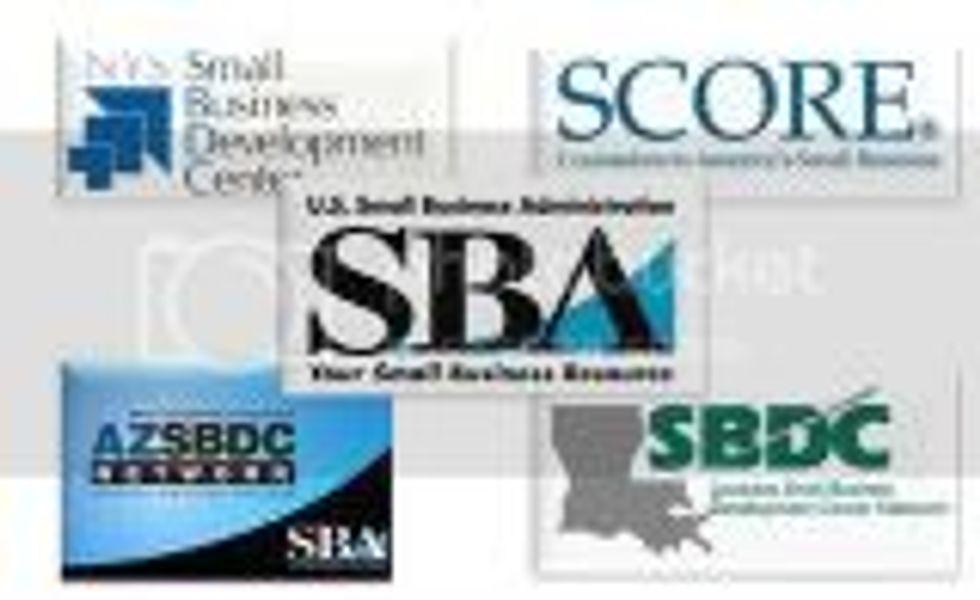SBA, SCORE, and SBDCs Explained - 3 Essential Local Resources for Small Business Owners

How many days and nights has this reality kept you on your toes? From making sure your business stays on track to cheerleading your employees, day-to-day business ownership is about what you make it.
But what happens when you need help? Back-stop or not, you can’t go it alone forever. Help is at hand, if you know where to find it.
The government, in particular, offers a great deal of resources that support small business owners, both online and locally. Take a look at this Small Business Assistance and Training guide on Business.gov and you’ll find a variety of options - local SBA offices, Small Business Development Centers, SCORE, and more.
But just what does each of these provide? And where should you start? Here’s an overview of the services and support offered, and not offered, by three essential government-sponsored small business support organizations.
1. Small Business Administration (SBA) Local Offices
What They Do: The SBA is probably best known for the loan guarantee programs it provides to small business owners in partnership with banks and lending institutions. However this federal agency also operates local offices nationwide that provide free or low cost advice and counseling on a variety of small business issues.
SBA local offices can help guide you through available SBA loan options and the application process and steer you towards small business-friendly banks. SBA offices also provide regular in-person and online training and workshops on a variety of topics including government contracting opportunities; disaster preparedness; assistance for veterans and minorities; the SBA loan process, and more.
Local SBA disaster field offices also help small business owners with disaster loan assistance in the event of a federally-declared disaster.
What They Don’t Do: SBA local offices do not help you process your loan paperwork. You must work through your bank for an SBA loan. The SBA itself also doesn't provide direct loans; your lender will submit your loan package to the SBA for approval. SBA offices also don’t provide grants for start-ups or for-profits. For more information about the SBA loan process and other financing options read: SBA Small Business Loans Explained: Availability, Eligibility and the Application Process.
Find your local SBA Office and follow SBA on Twitter and Facebook.
2. SCORE - Counselors to America’s Small Business
What They Do: SCORE (previously known as Service Corps of Retired Executives) is a network of retired business executives, leaders and volunteers who provide free and confidential counseling, mentoring and advice to small business owners nationwide.
Sponsored by the SBA, SCORE has over 12,400 volunteers who share their expertise through in-person and online counseling. Be prepared to deal with several experts if you need end-to-end business advice. SCORE specialists are just that, they often have a specific area of expertise (HR, business planning, etc.) and while your primary counselor will be your main point of contact, they can help identify and introduce you to other specialists.
SCORE also operates a resource-rich Web site (www.score.org) that includes how-to guides and online training as well as a listing of its local branches which also operate in-person workshops.
If you need answers quickly - SCORE also operates "Ask SCORE Online" a convenient and fast way to get your business questions answered. Go to our Ask SCORE page and enter keywords or a biz topic. Then, choose a mentor from the list who best matches your business needs, and send him/her your questions. SCORE says it will respond via email within 48 hours.
What They Don’t Do: SCORE does not provide small business financing; neither do SCORE volunteers provide legal advice. Depending on the nature of your business query you may be better served by a lawyer.
Find SCORE locations near you and follow SCORE on Twitter and Facebook.
3. Small Business Development Centers (SBDCs)
What They Do: Small Business Development Centers are also sponsored by the SBA and provide management assistance to small business owners in the form of one-on-one counseling, training seminars, assistance with SBA loans, and technical assistance.
Local SBDC full time employees and volunteers are incredibly active in promoting entrepreneurial success in local communities. In addition to free counseling and complimentary seminars, several SBDCs (funding permitting) also operate resource centers that provide free use of PCs, business software and access to advice from counselors and a library of business publications. Networking sessions also promote knowledge transfer and business opportunities.
Anyone who is interested in starting a small business or in expanding an already existing business is eligible to use the services of an SBDC. Each state has at least one SBDC, some operating at the county level.
What They Don’t Do: As with SCORE counselors, SBDC offices do not provide financing nor do their counselors provide legal advice. Although many SBDCs often have local partnerships with legal service providers and law offices who may provide free consultations to SBDC referrals.
Local SBDCs maintain their own Web sites (find your nearest SBDC) and many are active on Facebook and Twitter.
Have you used any of these organizations or have any recommendations? Please leave a comment.
Additional Resources
- Latinos in Business - Government Resources for Hispanic Entrepreneurs
- For Women Business Owners: Five Essential Resources to Help you Start, Grow and Expand Your Business
- Need Help Starting a Business? Get the Right Kind of Advice & Take Control of Your Start-Up!



